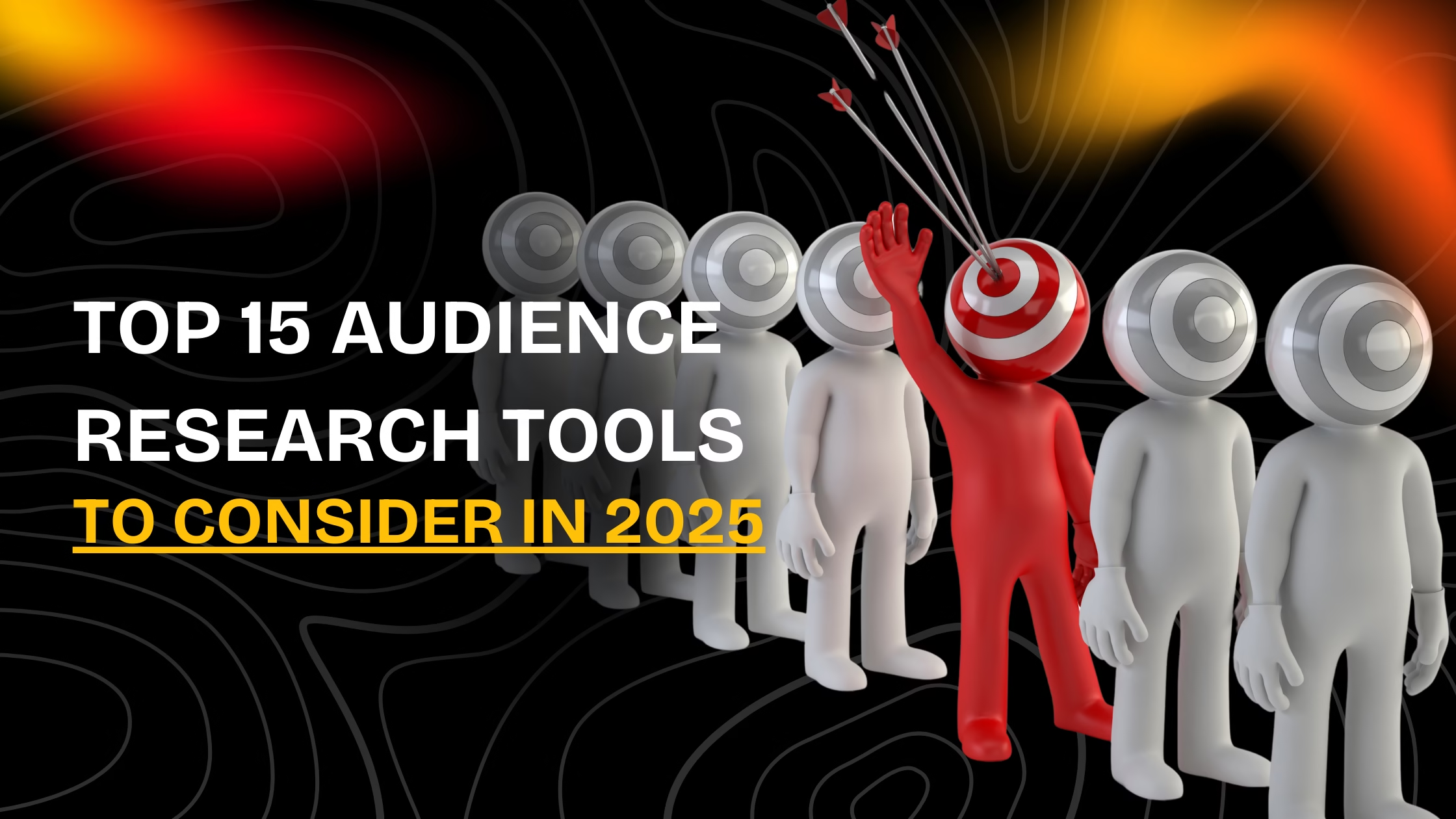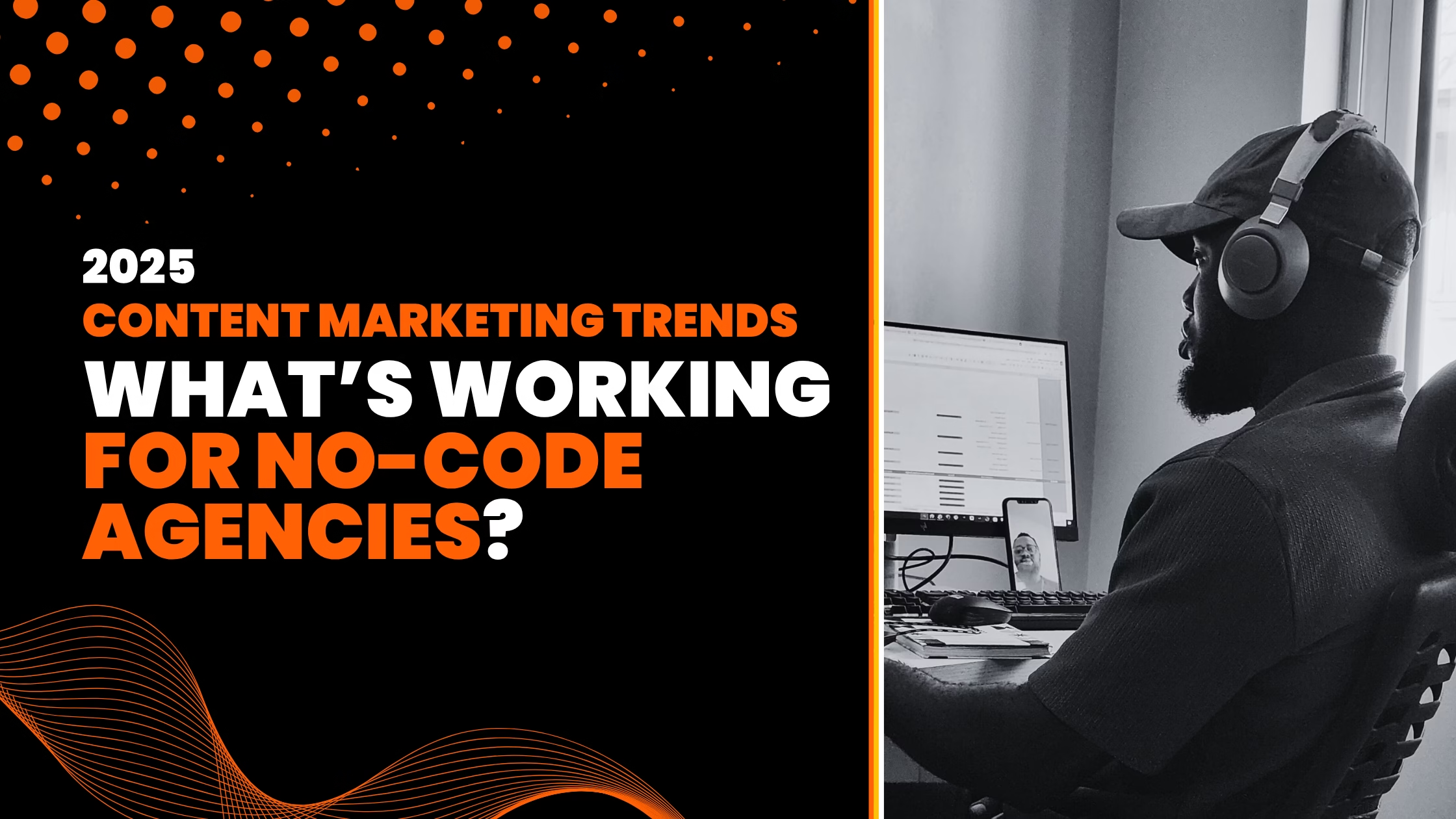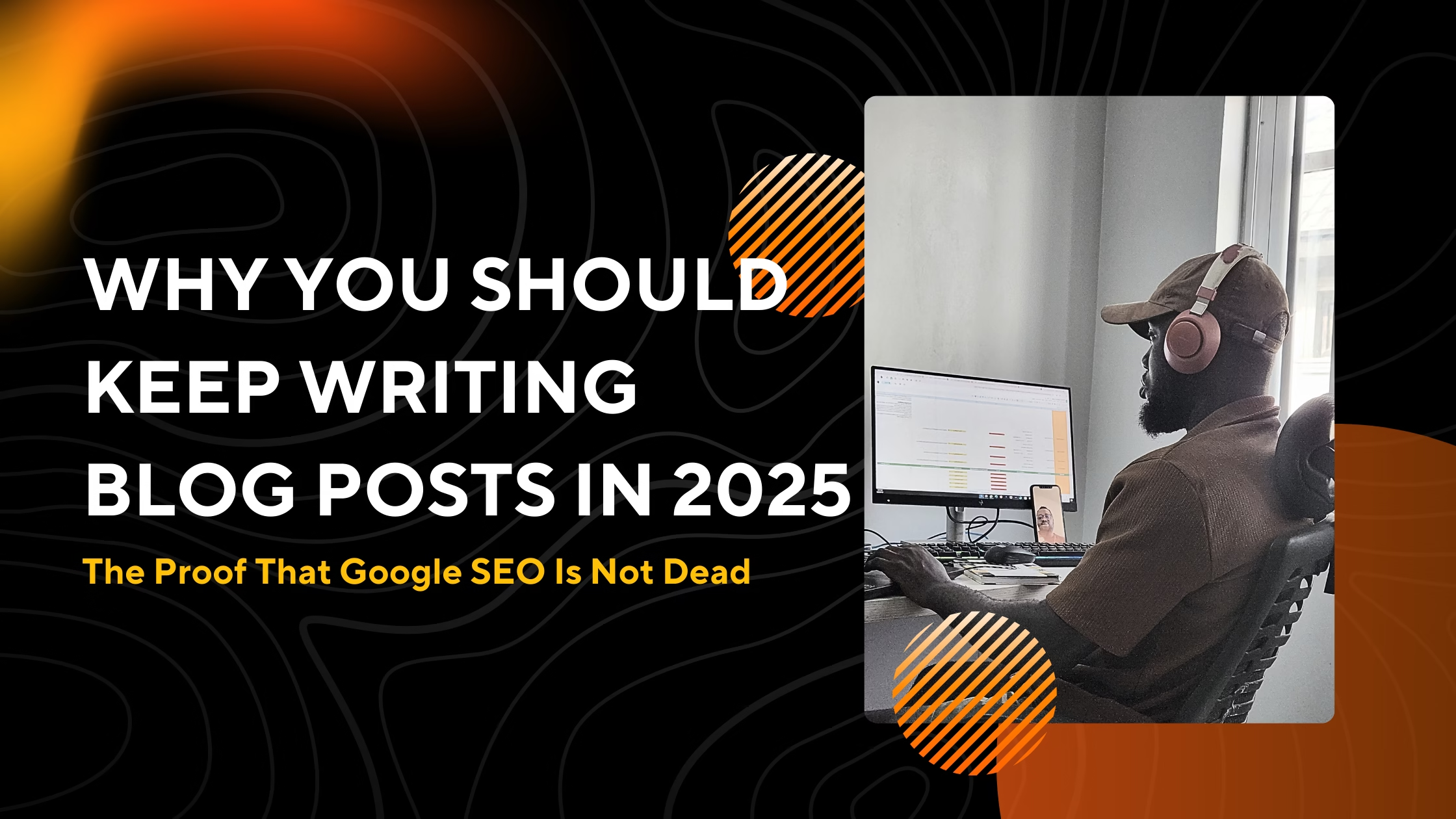Picture this: You’re a content marketer for a SaaS startup and just invested $1000 in an Instagram ad campaign. You chose your target audience, drafted a fantastic headline and content, and hit the post button.
Three weeks after launching your campaign, you checked your dashboard, eager to see substantial results from your hard work. Unfortunately, you only met a few clicks and zero conversions.
So, what did you do wrong?
Here’s the brutal truth: Your campaign did not fail because it had poor content or offerings. It failed because you assumed you knew your target audience.
You guessed their problems, interests, and behaviour, and hoped your message would convert them. It’s like you throwing darts blindfolded; your aim may be right, but you have very slim chances of hitting the perfect spot.
As a founder, content marketer, or growth strategist, you don’t want to gamble with your marketing. You want to create well-researched and data-driven campaigns that convert and generate results.
And that’s why we’ve put together the top 15 audience research tools in 2025 for you, including their pricing, features, and uses. So, you can stop guessing and start making highly targeted campaigns that get you results.
What You’ll Learn In This Article
What to look for when choosing an audience research tool
Paid and Free audience research tools and when to use them
Key strategies for using certain audience research tools
What to Look for in an Audience Research Tool
Every audience research tool differs in certain features, such as pricing, requirements, etc.
Choosing the most suitable one for your marketing campaign is vital for its success.
Major Features to Consider:
1. Demographic data:
Choose a tool that can provide adequate data on your target audience.
Knowing your users’ demographic information, such as their age, sex, education, location, and income, will help you craft more effective content that accurately targets your users’ pain points.
2. User Behaviour Tracking:
Opt for an audience research tool that tracks users’ interaction with your website, social media, and email content.
Cross-check that it can record users’ frequency of clicks, duration of visits, conversion rate, and records of past purchases.
3. Third-Party Integration:
Go for a tool that integrates seamlessly with your existing software.
Think about your email marketing (Mailchimp, Klaviyo), CRM (Monday, Zoho, Salesforce), and advertising (Google Ads, Meta) software.
4. Data Visualisation:
Audience research tools that provide real data insights in sleek designs and graphics offer a visual representation of market trends, including changes in behaviour and purchase choices, which ultimately help you make better marketing decisions based on this data.
5. Psychographic Data:
Just like demographic data, you need an audience research tool that provides your users’ psychographic data—the ‘why’ behind their behaviour.
This means their lifestyle choices, interests, and hobbies.
Having this information will improve your brand copy and campaign conversions.
When to Use Paid vs. Free Audience Research Tools
If you’re just starting with audience research tools, it’s a great idea to launch your journey with free tools like Google Trends or AnswerThePublic, which showcase the interests and search queries of your target customers.
Once you’ve become accustomed to using the tools, you can go deeper with a paid tool, such as Semrush or SparkToro, which offers advanced features and benefits, depending on your business goals and budget.
Free tools are suitable for startups that require initial research and a market overview with a limited budget.
Paid tools are for established businesses and professionals willing to invest more in their marketing campaigns and need cutting-edge analysis and competitive research.
Related Article: How To Find Your Target Audience
Best Audience Research Tools by Category
Free Audience Research Tools
1. Google Analytics
Source: Microsoft
If you’re looking for a platform that tracks your website visitors’ behaviour and measures real-time traffic at no cost at all, then this is the best choice for you.
Google Analytics is a Google-powered tool that tracks multiple metrics, including website visitor traffic and conversions, to measure the effectiveness of marketing campaigns.
- Pricing: Free.
- Key Features: Visitors’ demographics, sources, behaviour and conversion.
- Suitable For: Startups, growth strategists.
2. Facebook Audience Insights
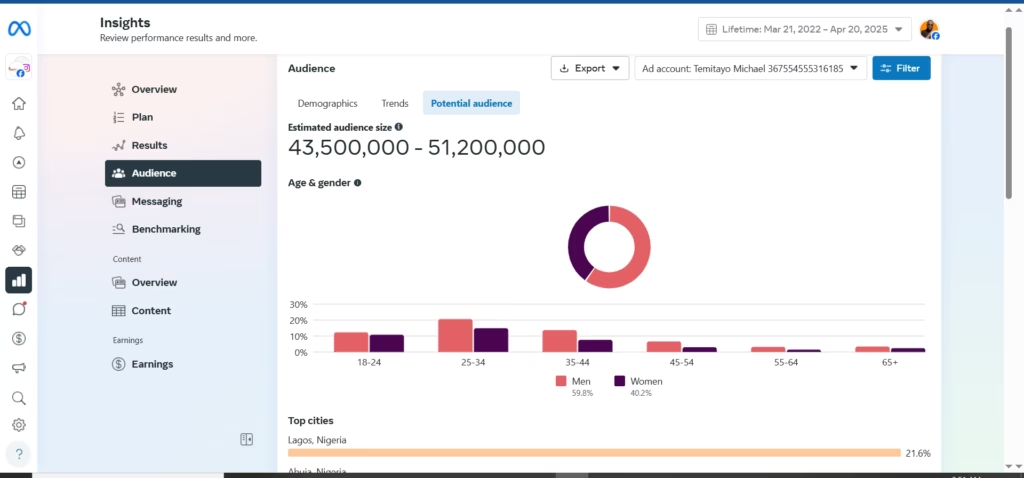
Source: Biteable
Meta-powered audience research tool that leverages the millions of users’ data on the Facebook audience insight tool to gather social media demographics and analyse users’ purchasing behaviour.
- Pricing: Free.
- Key Features: Social media demographic and Psychographic data.
- Suitable For: Digital marketers targeting social media users for a marketing campaign.
3. AnswerThePublic
AnswerThePublic uses circular graphical visualisations to showcase trending keywords searched by your target audience on Google’s SERP.
Marketers leverage it to get topic ideas for content creation.
- Pricing: Offers three free keyword searches per day. Paid plan starts at $9 per month.
- Key Features: Keyword grouping, data visualisations, content, and search behaviour.
- Suitable For: Startups, content strategists, bloggers.
4. Google Trends
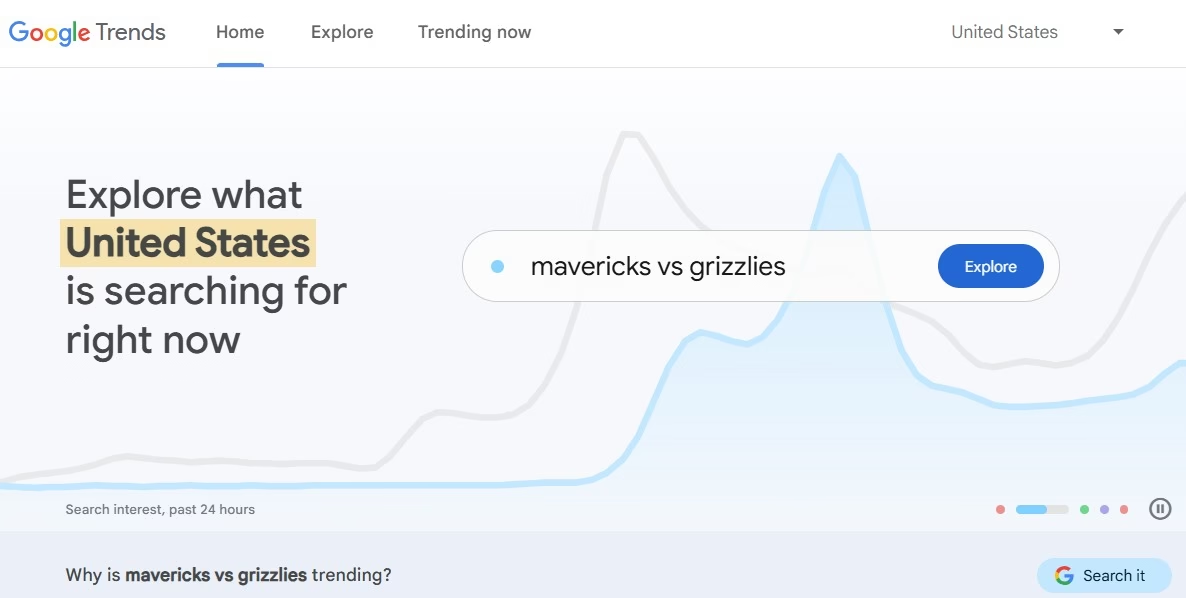
Google Trends, another audience research tool provided by Google, analyzes the volume of search terms in your industry across the SERP page and allows you to leverage the market trend.
- Pricing: Free
- Key Features: Market research, content and search behaviour..
- Suitable For: Startups, Online businesses, and content strategists.
5. Reddit Insights
Reddit is a community-driven online site with over 1 billion users that provides users with discussions, opinions and questions.
You can leverage this community-based audience research tool to stay updated with the latest market trends and know your target audience’s interests, questions, and problems.
- Pricing: Offers a free plan. Premium costs $5.99 per month.
- Key Features: search behaviour, demographic, and psychographic data.
- Suitable For: Digital marketers, content marketers.
6. Statista
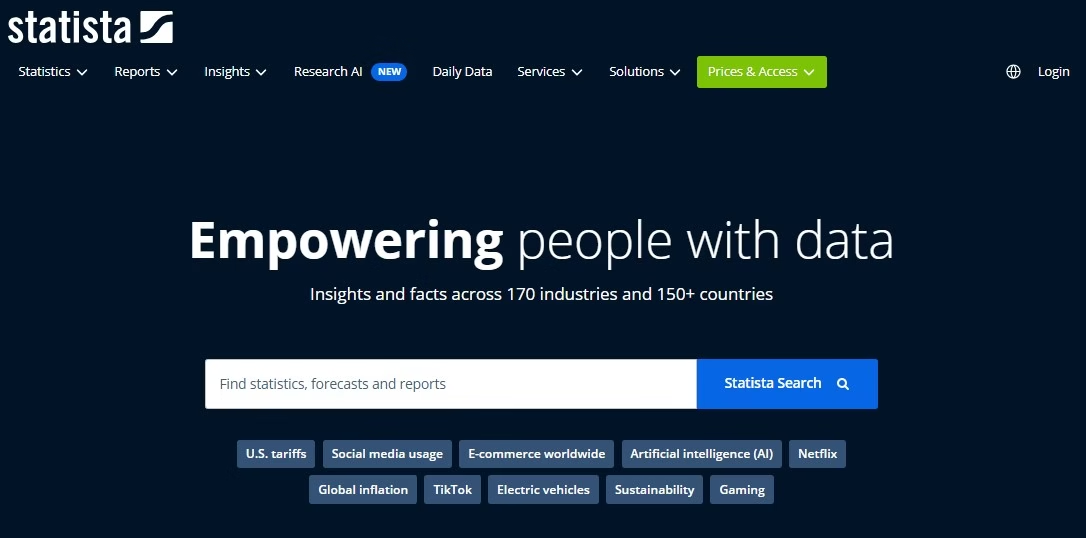
Statista is an online research platform that has over 22,000 data sources on 60,000 topics, providing actual insights on your industry market trends and target audience behaviour.
- Pricing: Gives access to free statistics. Premium costs $39 per month.
- Key Features: Market analysis, industry insights, user behaviour.
- Suitable For: Online businesses, content marketers.
7. Hotjar
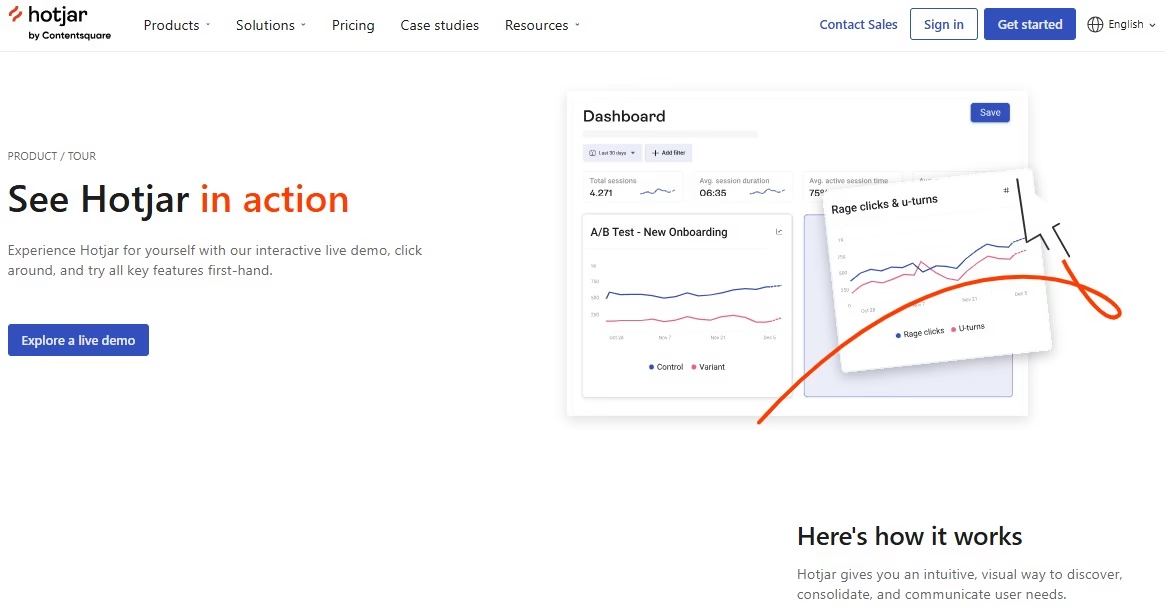
Hotjar is an online platform that monitors and tracks user interaction with your website to improve user experience.
- Pricing: Free plan available, and premium starts at $32 per month.
- Key Features: Survey and interview data, Demographic and Psychographic data.
- Suitable For: UX designers, content managers, and growth strategists.
Paid Audience Research Tools (SMBs & Mid-Size Businesses)
8. SparkToro
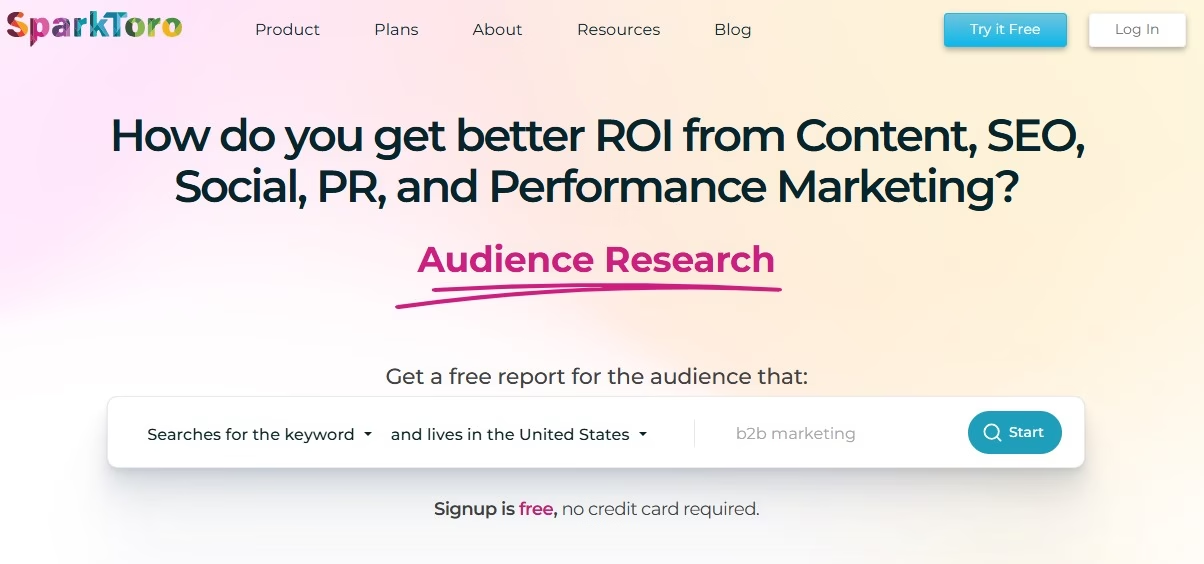
SparkToro is a market and audience research tool that streamlines data from various sources online, studies, and gives insights on users’ behaviour, interests, and preferences.
- Pricing: $39 per month.
- Key Features: Keywords segmentation, search behaviour, psychographic data.
- Suitable For: Startup founders, content creators, and digital marketers.
9. SEMrush
SEMrush is an all-encompassing marketing tool that focuses on SEO, keyword research, competitor research, pay-per-click (PPC) advertising and content marketing with an aim to skyrocket your online visibility.
- Pricing: Costs $129.95 per month.
- Key Features: Search behaviour, keyword segmentation, demographics and psychographics.
- Suitable For: SEO strategists, content marketers.
10. Ahrefs
Ahrefs is an audience research tool that offers backlinking, site audits, competitive analysis, SERP position tracking and other SEO services to boost your site’s optimisation for search engines.
- Pricing: Has multiple plans ranging from starter, lite, standard, advanced, and enterprise to API subscriptions. Pricing ranges from $29 to $500 per month.
- Key Features: SEO-based audience segmentation, keyword analysis, and search behaviour.
- Suitable For: SEO specialists, startup founders, and content marketers.
11. Ubersuggest
Ubersuggest, developed by Neil Patel, is an all-in-one SEO research tool with expertise in website analysis, search volume tracking, keyword discovery and segmentation.
- Pricing: Free Chrome extension available. Premium ranges from $29 to $99.
- Key Features: Keyword research, website analysis, SEO-based audience analysis.
- Suitable For: Digital marketers, content marketers.
12. Brandwatch
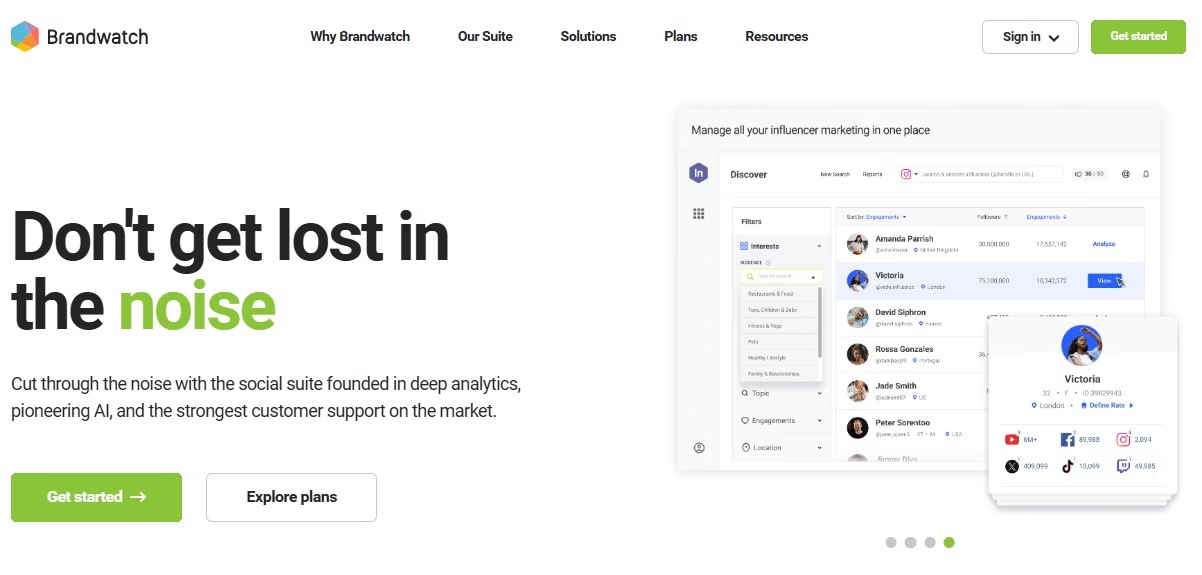
Brandwatch leverages social media technology by monitoring consumers’ online discussions, interests and preferences on Social media. Research top social media influencers and segment this data into market insights that are significant for business growth.
- Pricing: $800-$3000/month.
- Key Features: Social media-based audience segmentation, psychographic data.
- Suitable For: Social media managers, copywriters, brand strategists.
Enterprise-Grade Audience Research Tools
13. Nielsen
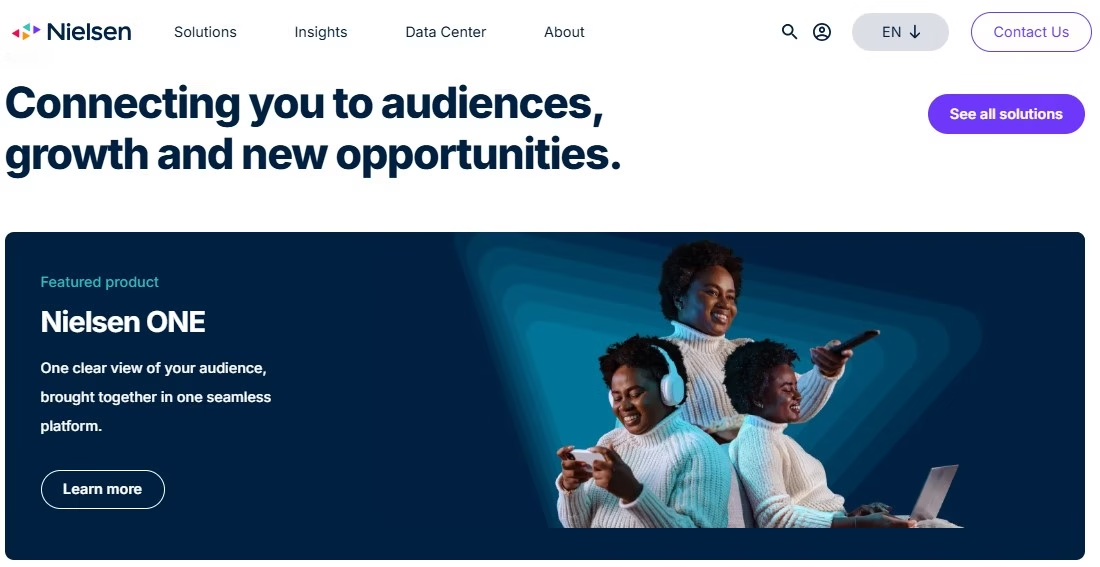
Nielsen gathers consumer information, including ‘what’ they view and buy online, and ‘where’ they purchase these items from. Nielsen analyses this data and provides leverageable market insight to improve businesses’ messaging to their audience.
- Pricing: Customised to the organisation’s needs.
- Key Features: Consumer insight, audience segmentation, search behaviour.
- Suitable For: Marketing leads, big media agencies.
14. Forrester
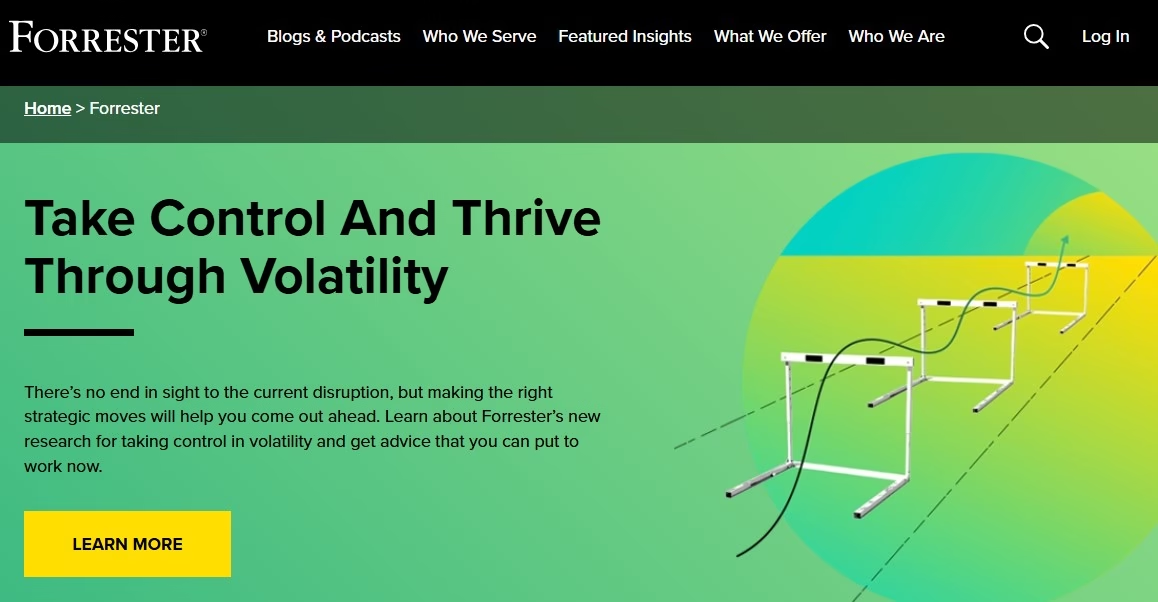
Forrester also leverages consumers’ online consumption data alongside technology research to build intelligent market insights useful for business fostering.
- Pricing:
- Key Features: Buyer personas, consumer trends analysis.
- Suitable For: Content marketing officers, enterprise-level companies.
15. Meltwater
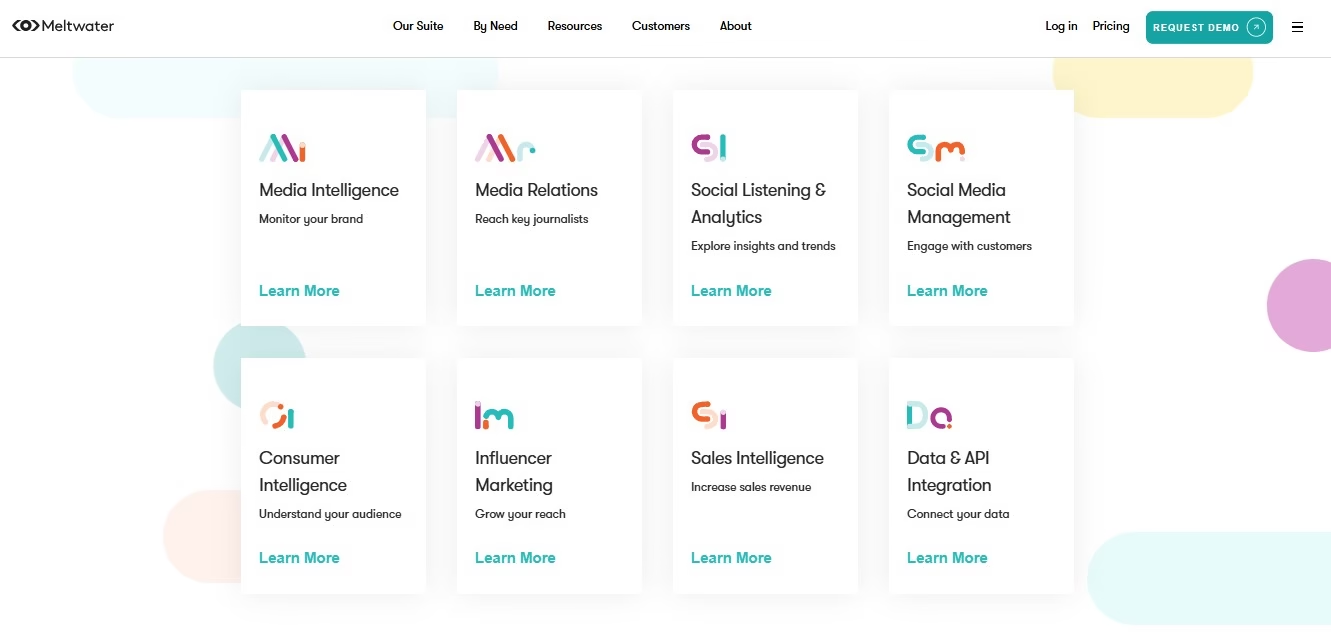
Meltwater is an audience research tool that combines AI with marketing. It utilises online data, consumer engagement and social media intelligence to provide market-relevant insights.
- Pricing: Based on the company’s needs and budget.
- Key Features: PR strategy, Social media-based audience segmentation, and sentiment analysis.
- Suitable For: Large media companies, global PR teams.
Summary Of My Top Audience Research Tools
| Tool Name | Pricing | Key Features | Best For |
|---|---|---|---|
| Google Analytics | Free | Website visitor tracking, demographics, traffic sources, behavior flow | Startups, growth strategists |
| Facebook Audience Insights | Free | Social media demographics, psychographics | Digital marketers targeting social users |
| AnswerThePublic | Freemium ($9/month for premium) | Keyword grouping, content ideas, visualized search behavior | Content strategists, bloggers |
| Google Trends | Free | Trend analysis, search volume tracking, market research | Startups, content creators |
| Reddit Insights | Freemium ($5.99/month premium) | Community-driven insights, trends, discussions | Digital marketers, researchers |
| Statista | Freemium ($39/month premium) | Industry data, user behavior, market analysis | Businesses, content marketers |
| Hotjar | Freemium ($32+/month for premium) | User interaction heatmaps, surveys, psychographics | UX designers, growth strategists |
| SparkToro | Paid ($39/month) | Psychographics, behavior insights, audience segmentation | Founders, digital marketers |
| SEMrush | Paid ($129.95/month) | SEO tools, keyword & competitor research, demographic insights | SEO strategists, content teams |
| Ahrefs | Paid ($29–$500+/month) | Backlinks, SERP tracking, keyword segmentation | SEO specialists, marketers |
| Ubersuggest | Freemium ($29–$99/month premium) | Keyword discovery, SEO analysis, search behavior | Content marketers, digital strategists |
| Brandwatch | Paid ($800–$3000+/month) | Social listening, influencer analysis, psychographics | Social media managers, brand strategists |
| Nielsen | Enterprise (custom pricing) | Consumer insight, behavior & purchase data, market segmentation | Media agencies, marketing leads |
| Forrester | Enterprise (custom pricing) | Technology trends, consumer behavior analysis, buyer personas | Enterprises, marketing officers |
| Meltwater | Enterprise (custom pricing) | AI-driven media intelligence, sentiment analysis, social segmentation | PR teams, enterprise marketers |
How to Choose the Right Audience Research Tool
Choosing the right audience tool largely depends on your business goals and budget. If you’re a startup with limited budgets, then you can either opt for the free or minimal pricing tools. For example, you can opt for Facebook insights, Google Trends, or AnswerThePublic.
If your goal is to do basic research on your target audience, you can opt for tools like Statista, Reddit, and Facebook Insights.
However, if you understand your consumers’ needs and need to develop a content strategy for enhanced visibility, you should opt for Google Trends, Google Analytics, and AnswerThePublic.
To gain access to more advanced features and deeper research that will get you better results, opt for the paid and enterprise-level tools like SEMrush, Nielsen, or Meltwater.
Related Article: How To Find Your Target Audience
Google Analytics Step-by-Step Guide
Here’s a detailed guide on how to set up Google Analytics for audience insight:
- Sign up on the Google Analytics webpage.
- Enter all required details.
- Select your data collection platform.
- Enter your URL for data streaming.
- Click on the ‘audience’ tab.
- Choose Demographics and Interests.
- Input your ideal target customer age and sex.
- Customise your website to fit this segment and you’re good to go.
Finally,
Launching a marketing campaign without proper audience research is similar to navigating the sea without a compass; failure is inevitable.
Whether you’re a startup or an enterprise-level business, there’s a tool that suits your business goal and budget.
Free tools like Google Analytics and AnswerThePublic are perfect if you’re on a tight budget, while paid platforms like Nielsen and SEMrush are ideal if you have a bigger budget.
So, are you ready to stop getting zero conversions and start getting hefty conversions? If yes, download our free audience research template below to start creating campaigns that get you real results.
FAQ
What are the essential features to look for in an audience research tool?
Look for tools that offer demographic data, psychographic insights, user behaviour tracking, third-party integrations, and visual data dashboards. These features help you deeply understand and target your ideal audience.
What’s the difference between demographic and psychographic data?
Demographic data includes factual details like age, gender, income, and location. Psychographic data explores deeper motivators—such as lifestyle, interests, and values—which reveal the “why” behind customer actions.
What’s a good audience research tool for beginners?
Google Analytics, Google Trends, Ubersuggest and AnswerThePublic are excellent for beginners. They’re free, easy to use, and offer valuable insights into user behaviour and search trends without overwhelming complexity.
How can audience research tools improve campaign conversions?
These tools help you craft messages that resonate by revealing who your audience is, what they care about, and how they behave online. With this clarity, your content becomes more relevant and persuasive, leading to higher conversions.
